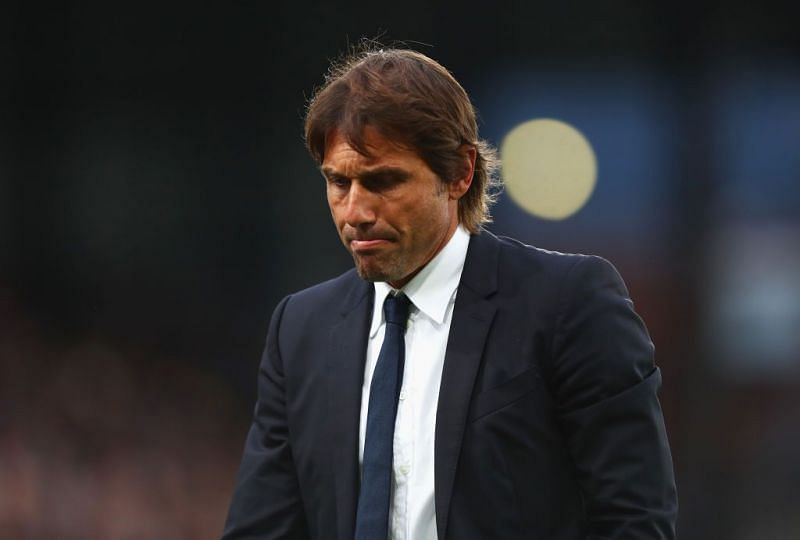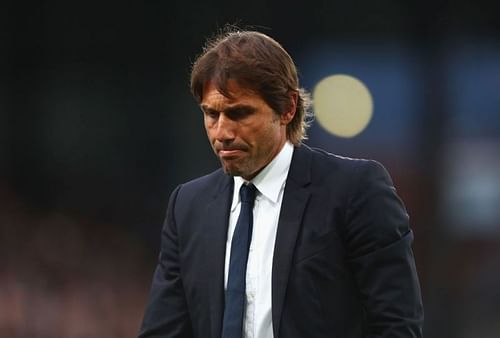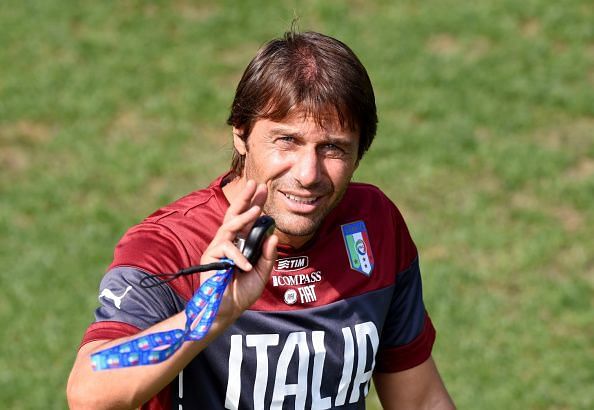
5 reasons why Antonio Conte may be appointed Italy manager

It's fair to say that Antonio Conte's second season as Chelsea manager hasn't gone quite as well as his first. They surprisingly ran away with the EPL title, finishing with a comfortable seven-point gap between nearest challengers Spurs. Conte had crafted a difficult team to break down in his favored 3-5-2 formation, but with enough flair from players like Eden Hazard and Diego Costa to entertain as well.
They weren't necessarily the favourites to retain their league title coming into this season but few expected Chelsea to struggle as much as they have: Chelsea currently lie back in fifth place, a massive 28 points behind clear leaders Manchester City; with just seven games remaining, Chelsea will do well to make it into fourth spot and secure the last Champions League place for next season.
Unsurprisingly given the rocky nature of the Chelsea managerial job, Conte has had to deal with speculation regarding his position for months now and he's often looked like a beaten man. Even if he does want to stay in England and battle, Roman Abramovich might not afford him that luxury. Luckily for Conte, however, the Italy national team are looking for a new manager, and no one might be better placed to take on the role, given Conte's previous experience as coach of his country.
Italy remarkably failed to qualify for this summer's World Cup in Russia, putting an end to Gian Piero Ventura' sorry tenure, and they'll have to pick the right man to steer them through the crucial upcoming qualification campaign for Euro 2020. This article will consider 5 reasons why Conte would be the perfect candidate to return as Italy manager.
#1 Previous Italy record

Conte, of course, came to Chelsea after ending his time in charge of Italy and he could be proud of his achievements as a manager. He replaced Cesare Prandelli following the 2014 World Cup and guided them easily to qualification for the 2016 Euros undefeated. He continued using his favored formations from his time at Juventus - 3-5-2 and 4-3-3 - but many fans were sceptical of his tactics and there was little trust in Conte and his team going into the tournament.
The squad was one of Italy's weakest in many years, giving the manager even more to worry about. Midfield maestro Andrea Pirlo had retired and the starting striker Graziano Pelle was effective but limited technically. Conte likes to operate against pressure and Italy performed above expectations during the group phase: pre-tournament favourites Belgium were counter-attacked effectively and beaten 2-0, Sweden were then defeated with a late goal, before a 1-0 loss to Ireland in a meaningless fixture.
It was the first time Italy had topped a group in 10 years and Conte drew praise for his tactical maturity and the defensive steel of his side. Italy were even more impressive in the last-16 against fancied Spain, with Conte's defenders putting in a colossal display to see out a 2-0 victory. Their tournament run was unfortunately ended in the next round by old foes Germany, but only on penalties in a tense match.
Despite his success, Conte wished to return to the intensity of club management, but it's always hard to ignore the call of one's country. After the frustrations of this campaign, a return to Italy might be beneficial to Conte. Much of the squad remains from his previous tenure and, given how well he did to get the best out of such a limited squad, there's no reason he couldn't find similar success again.